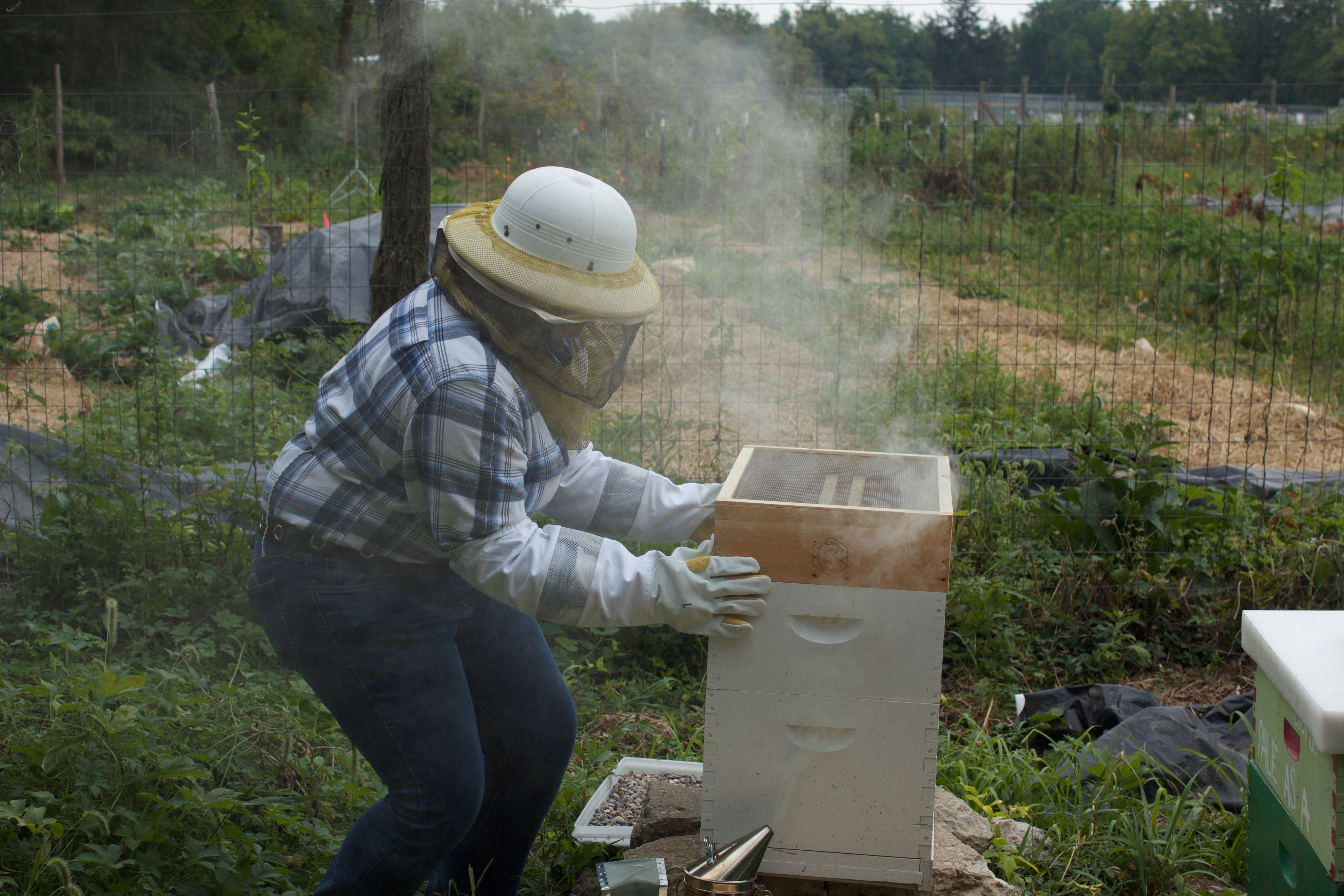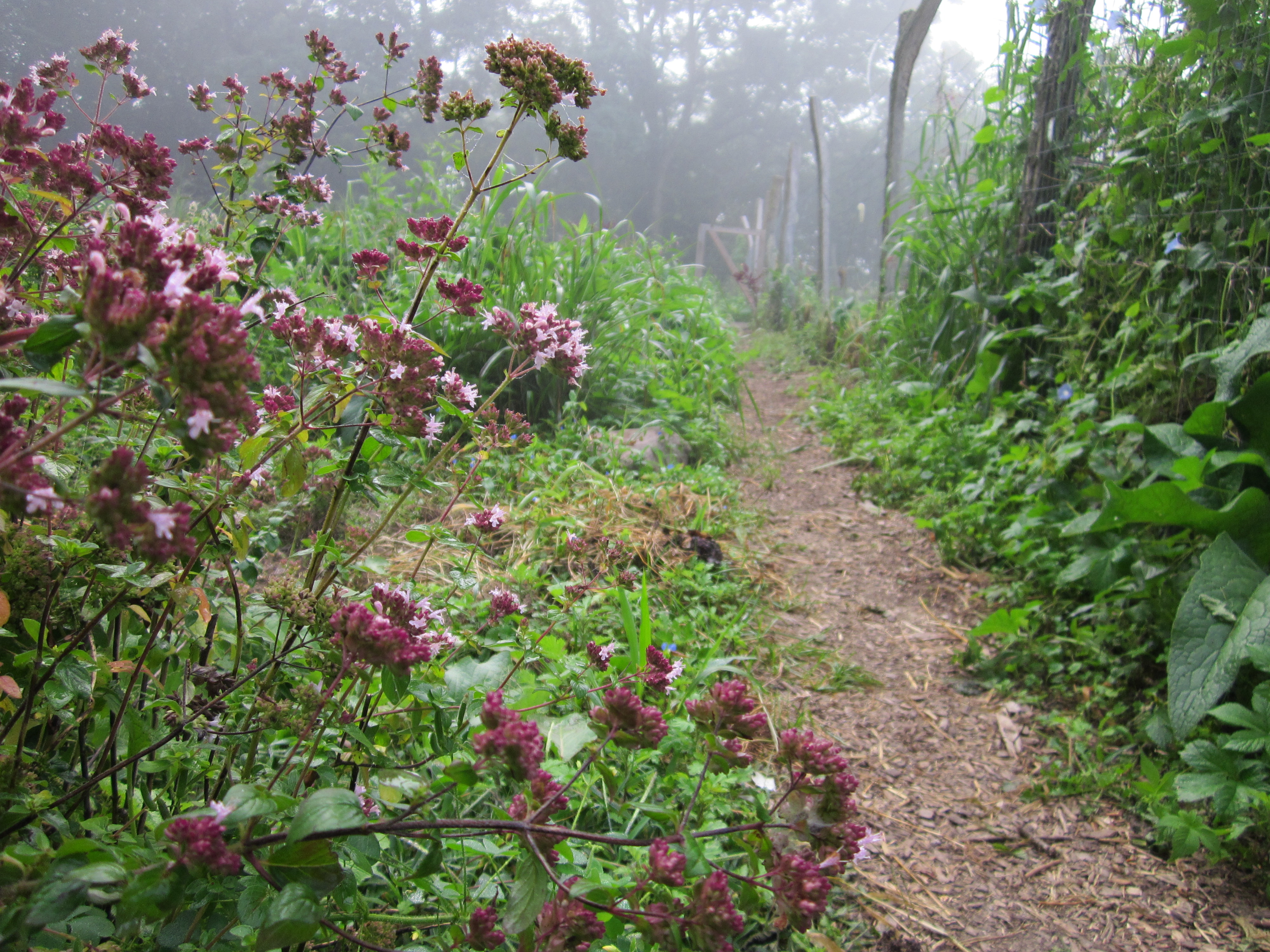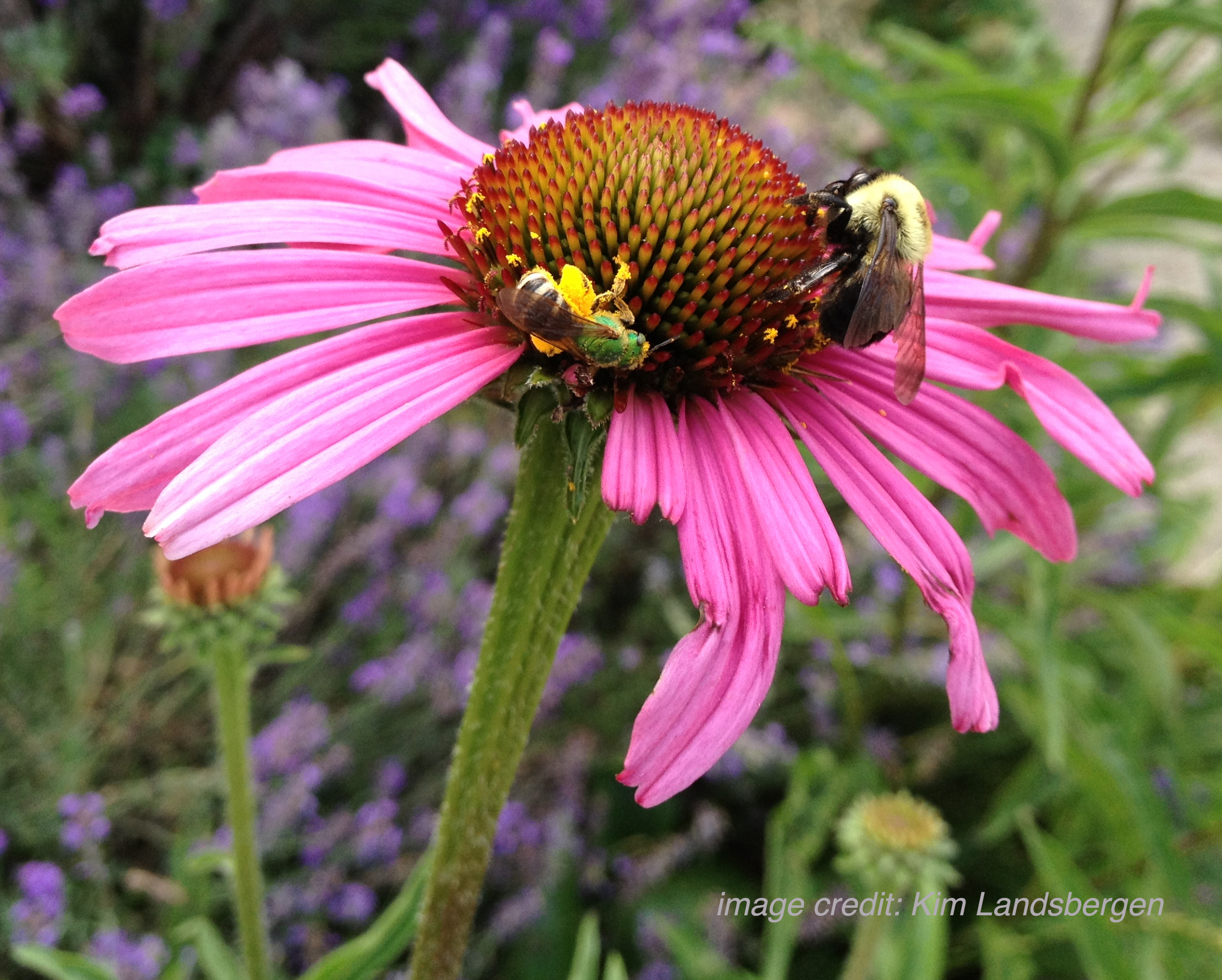Colleges are abuzz with pollinator-friendly practices
We are very excited that over the past year, numerous higher education institutions – including Antioch College, Villanova University, and Macalester College – have committed to being pollinator-friendly campuses by joining our BEE Protective Campaign. And with spring just having sprung, we checked in to see how they’re doing. There have been some busy bees on these campuses, especially at Antioch College in Yellow Springs, Ohio. Here’s a peek at some of the progress Antioch has made to help protect bees and other important pollinators, and their habitats…
 |
| Tending to bees on the Antioch campus. Photo by Beth Bridgeman. |
Since joining BEE Protective, the Antioch community has done an incredible job engaging students in the issues surrounding pollinator health through classroom activities and off-campus partnerships. The importance of healthy pollinators and their habitats is discussed in Antioch’s Ecology, Botany, and Ecological Agriculture courses. An environmental science class has taken the initiative to establish a pollinator pathway through their lively campus farm, and the students look forward to expanding the pathways as part of their Food, Farming and Resilience course this spring. Antioch’s farm also hosts multiple honey bee hives!
Off campus, Antioch has partnered with Urbana University and the Propolis Project to host a 1-day intensive Bee School. Additionally, Professor Emily Steinmetz’ class established a pollinator garden with inmates at the Dayton Women’s Correctional Institute. These events have been wonderful opportunities for Antioch to expand and share their bee knowledge with the broader Ohio community.
 |
| A food forest path at Antioch welcomes bees with herbs like oregano. Photo by Beth Bridgeman. |
Since eliminating the use of neonicotinoids around their campus last year, the Antioch grounds crew has made tremendous strides planting and maintaining pollinator and native plant gardens throughout the main campus. They also report no significant issues with pests or diminished plant health since banning neonicotinoids from their grounds care procedures.
We applaud Antioch College and their tremendous community of dedicated pollinator stewards for their efforts thus far. We’d like to offer special thanks to faculty members Beth Bridgeman, Dr. Kim Landsbergen and Dr. Emily Steinmetz; staff members Reggie Stratton (now retired), Kyle Lewis and Kat Christen; Antioch Sustainability Committee; Antioch students; and the community members of Yellow Springs who have led Antioch towards modeling bee-friendly practices and becoming a visionary in the sustainable food movement. We look forward to hearing more about their success throughout 2017!
WHY it’s important for campuses and communities to BEE Protective
 |
| Pollinator-friendly plants welcome bees on Antioch's campus. Photo by Dr. Kim Landsbergen |
In the United States, pollinators contribute $20-30 billion annually in pollination services to the agricultural sector. Indeed, about ninety percent of flowering plants depend on pollinators. Yet, over the past decade, we have witnessed an alarming decline in honey bee and other pollinator populations around the world. Although there are many contributing factors to this crisis, scientists increasingly attribute poor pollinator health and bee die-offs to the indiscriminate use of systemic pesticides, most notably a class of insecticides known as neonicotinoids (neonics), used widely both in agriculture and in landscaping.
This problem spurred Center for Food Safety and our partners at Beyond Pesticides to launch the BEE Protective Campaign—an initiative to encourage universities, institutions, and local municipalities to resolve to eliminate the use of bee-toxic pesticides on their grounds and to foster healthier habitat by planting pollinator friendly plants.
Spring is the perfect time to increase community involvement around these issues! By joining our campaign and committing to ban the use of neonics, your community will:
- Be recognized for your commitment to pollinator protection in your community and within our 800,000+ member network;
- Be awarded an aluminum yard sign to commemorate that your community or institution is a BEE Protective area;
- Receive informational resources about expanding pollinator protection efforts and gain tools for hosting pollinator events;
- Be valuable participants in helping conserve the pollinators that are an essential part of our food system.
If you’d like to participate in our campaign or have any further questions, please contact the CFS Pollinator Program at pollinators@centerforfoodsafety.org. What are you waiting for? Let’s get buzz-y!







